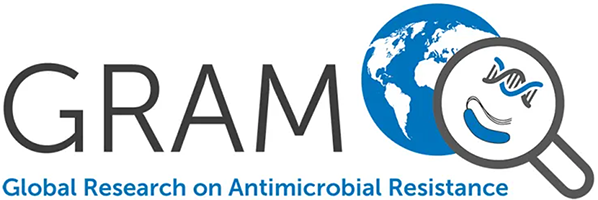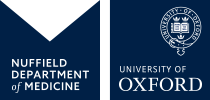GRAM—a partnership between the University of Oxford and the Institute for Health Metrics and Evaluation (IHME), University of Washington—will continue its work to estimate the global burden of antimicrobial resistance (AMR) and antibiotic consumption, and other key priorities. Researchers will utilize one of the most comprehensive AMR datasets available, which the team collected during phase one, and hopes to augment with additional data.
"We are extremely grateful for the opportunity to continue the vital work of estimating antimicrobial resistance and consumption,” said Dr Benn Sartorius and Prof Christiane Dolecek, principal and co-principal investigators of the GRAM team. “The research will also include new elements, by investigating the patterns of resistance in single pathogens, and potentially investigating the effects of medicine quality and non-human drivers, such as antimicrobial consumption and associated resistance in animals and the environment.”
The GRAM team in Oxford are based in the Centre for Tropical Medicine and Global Health (CTMGH), within a group known as Antimicrobial Consumption and Resistance Burden Estimation (MICROBE). Dr Sartorius and Prof Dolecek will guide the research in partnership with GRAM team members at IHME in Seattle.
Global health leaders and funders came together to create GRAM in 2017 in order to increase the quantitative evidence base of drug-resistant infections, following concerns about a worldwide rise in AMR. A chief aim of the project is to include AMR in IHME’s ongoing Global Burden of Disease (GBD) study, so that researchers, policy makers and health practitioners can compare the impact of AMR with other types of health loss in recent decades.
In January, GRAM published preliminary findings in the Lancet which identified AMR for the first time as a leading global cause of death, with at least 1.27 million annual deaths directly attributable. Read the study, ‘Global burden of bacterial antimicrobial resistance in 2019: a systematic analysis’, in the Lancet.
To estimate global AMR burden, GRAM relied on extensive new clinical evidence obtained from systematic reviews, and direct engagement with collaborators based in public health institutes, government ministries, academic institutions, and industry. Drawing from 471 million separate data points, GRAM also utilized data available from the GBD study. Utilizing bespoke quantitative methodologies developed by the project, the landmark paper was the first to use clinical data to estimate global AMR levels and cumulative health loss directly attributable to AMR in 204 countries and territories.
Upon publication GRAM’s funders launched a campaign to raise awareness of the 2019 results, to encourage national policymakers to use them to address AMR. Watch global health leaders discuss the GRAM results.
Besides the 2019 AMR estimation, GRAM has published several other key works, including the first longitudinal estimate of global antibiotic consumption in 204 countries and territories. Since the excessive or inappropriate use of antibiotics can contribute to the spread of drug-resistant infections globally the study sheds light on a critical driver of AMR. Read the study, ‘Global antibiotic consumption and usage in humans, 2000-18: a spatial modelling study,’ in the Lancet.
GRAM’s first phase concluded last summer, and research activities will extend through March 2025. For more information about GRAM please visit the team’s web pages.


 ©
CDC
©
CDC